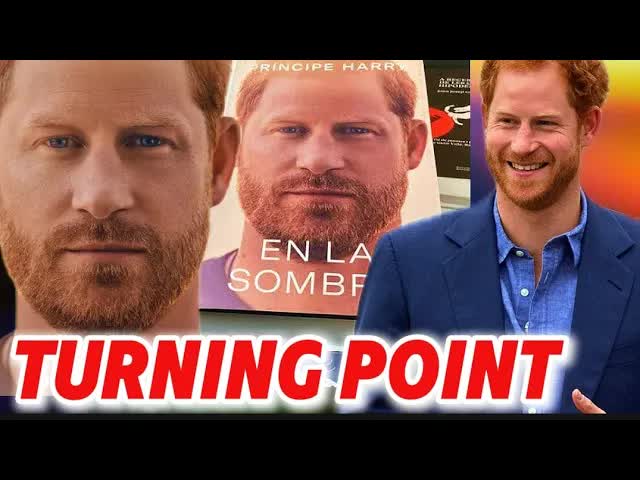In a recent revelation, Prince Harry opened up about his tumultuous relationship with the British monarchy in the paperback release of his memoir, “Spare.”
He emphasized that his struggles have never been rooted in the institution itself but rather in the toxic relationship between the press and the royal family.
Harry expressed a deep love for his homeland and family, yet he lamented their absence during one of the darkest periods of his life.
Harry’s journey has been fraught with challenges, as he navigates the complexities of royal life while yearning for personal freedom.
The prince has long felt the weight of tradition pressing down on him, conflicting with his desire to carve out an identity independent of the crown’s shadow.
His narrative is one of resilience, showcasing his enduring spirit in the face of adversity.
The relentless scrutiny from the media has been a constant companion since his childhood, following him like a shadow.
This ongoing attention has transformed his life into a human drama, filled with moments of joy, sorrow, and deep reflection.
Harry’s experiences resonate with anyone who has faced familial discord or the pain of loss while striving to create their own path.
As he reflects on his past, Harry’s longing for authenticity becomes evident.
He seeks to balance his royal responsibilities with his personal aspirations, embodying a struggle that many can relate to.
His story serves as a powerful reminder that even those born into privilege are not shielded from life’s challenges; the quest for meaning and fulfillment is universal.
The media’s insatiable appetite for sensationalism knows no bounds.
For Harry, the flashing cameras and shouted questions evoke painful memories of his mother, Princess Diana, who endured similar invasions of privacy.
The relentless pursuit of her story took a significant toll, both mentally and emotionally, ultimately leading to her tragic death.
Harry witnessed firsthand the impact of media intrusion on his mother’s life.
The sounds of motorbikes chasing her down streets and the constant fear of being followed haunted Diana’s final days.
These experiences left an indelible mark on Harry, shaping his perception of fame and the accompanying scrutiny that comes with it.
The parallels between Harry and his late mother are striking.
Both were thrust into the public eye at a young age, subjected to unyielding judgment and analysis.
Their lives became spectacles, leaving little room for personal moments or privacy.
They sought refuge wherever they could find it, but the media was always lurking, ready to capture their next misstep.
Behind the grand facade of Buckingham Palace lies a complicated family dynamic.
Tensions have simmered beneath the surface, fueled by years of unspoken grievances.
The relationship between Harry and his father, King Charles, has been particularly strained, exacerbated by the arrival of Kate Middleton, which altered the once-close bond between the brothers.
For years, Harry adhered to the royal mantra of “never complain, never explain.”
This principle, ingrained in him from childhood, demanded silence in the face of adversity.
While he dutifully attended public engagements and supported various charities, the emotional burden of these expectations began to weigh heavily on him.
The relentless pressures of royal life took a toll on Harry’s mental health.
The expectation to maintain a perfect public image left little room for his own emotional well-being.
As the scrutiny intensified, he found himself increasingly overwhelmed, struggling to reconcile his public duties with his private pain.
Recognizing that this unsustainable lifestyle was detrimental to his health, Harry reached a breaking point.
He realized that he could no longer live under the constraints of tradition and protocol.
With Meghan Markle by his side, he chose to embark on a new journey—one focused on mental well-being and authenticity, free from the chains of royal expectations.
In a bold move that sent shockwaves through the monarchy, Harry and Meghan stepped back from their royal duties, seeking a life of independence in California.
Although their decision was met with mixed reactions, Harry viewed it as a necessary step to protect his family from the toxic environment that had caused him so much pain.
Meghan’s arrival in Harry’s life marked a significant turning point.
Her independent spirit and willingness to challenge royal conventions encouraged Harry to break free from tradition.
While some see her as a modernizing force, others view her as a divisive figure responsible for the rift within the family.
Ultimately, Prince Harry’s journey is intricately tied to the legacy of his mother, Princess Diana.
Her tragic loss has profoundly shaped his worldview and fueled his determination to shield his own family from the media’s relentless gaze.
Harry’s story is a poignant reminder of the lasting impact of love and loss, illustrating the wounds that remain long after the headlines fade away.
